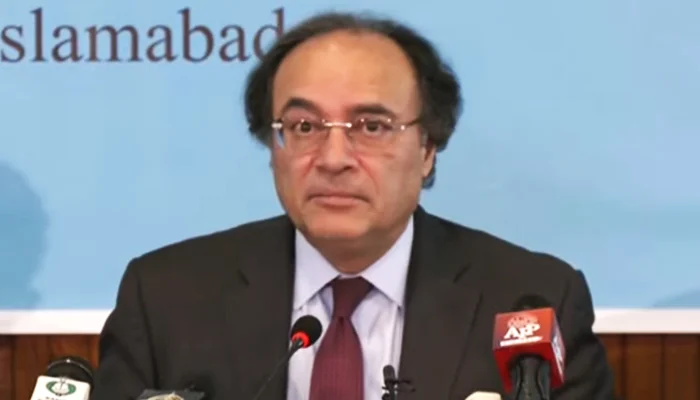Finance Minister Muhammad Aurangzeb unveiled the Economic Survey for the outgoing fiscal year 2023-24 (FY24) during a press conference in Islamabad on Tuesday.
He briefly outlined key points from the survey, stating that in FY23, the GDP contracted by 0.2%, the PKR depreciated by 29%, and foreign exchange reserves were only sufficient to cover two weeks of imports. He emphasized the necessity for Pakistan to enter into a program with the International Monetary Fund (IMF) in FY24, highlighting the absence of a Plan B and the pivotal role of the nine-month Stand-By Arrangement (SBA) in the current situation.
Agriculture emerged as a significant driver of growth, with Minister Aurangzeb noting its continued importance for the country’s economic development.
Here are the key highlights from the Economic Survey:
1. A smooth political transition from the caretaker to the elected government has bolstered economic confidence, fostering a revival.
2. The size of the economy in FY24 increased by 11% to $375 billion, with notable growth in the agriculture sector at 6.3%.
3. Industrial activity rebounded, with a growth of 0.09% in Q2-FY24 and further improvement to 3.84% in Q3, driven by better crop production and increased global demand.
4. Per capita income rose by $129 to $1,680, attributed to improved economic activity and currency appreciation.
5. Inflation declined to a 30-month low of 11.8% in May 2024, supported by exchange rate stability, monetary tightening, fiscal consolidation, smooth food supply, and favorable global commodity prices.
6. External accounts significantly improved, with increased exports, reduced imports, and a narrowed current account deficit.
7. Exports rose by 10.6%, led by growth in food exports, while imports decreased by 5.3%.
8. Workers’ remittances increased by 7.7%, contributing to foreign exchange reserves, which reached $14.2 billion by May 2024.
9. Foreign Direct Investment (FDI) improved by 8% in Jul-Apr FY2024 to $1.5 billion, with significant contributions from China, Hong Kong, and the UK.
10. Tax collection by the Federal Board of Revenue (FBR) grew by 31% to Rs 8,125.7 billion during Jul-May FY2024.
11. The fiscal deficit was reduced to 4.5% of GDP during Jul-Apr FY2024, with a significant improvement in the primary surplus to 1.5% of GDP.
12. Public debt accumulation slowed down, with a growth rate declining from 20.3% in March 2023 to 7.4% in March 2024.









